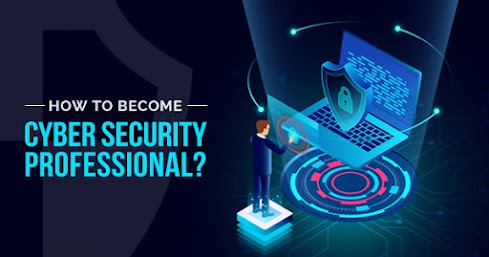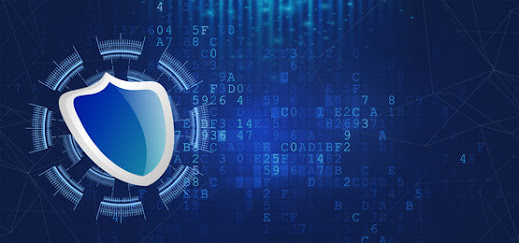Becoming a Cyber Security professional requires a combination of technical knowledge and practical experience. Here are some steps you can take to become a Cyber Security or DAM professional.
SHORT INTRO ABOUT ME
This is Vamsi, I’m a Senior Data Security Engineer with relevant experience of 5 years and an overall experience of 8 years in the IT field.
Currently, I work as an SR. Guardium/DB Security Engineer, specializing in data activity monitoring. My role involves utilizing IBM Guardium and related security tools like 1Touch, GDE, and Guardium Insights. I handle DAM projects from sales to demos, health checks, proof of concept, stakeholder engagement, architecture, deployment, testing, documentation, compliance monitoring, reporting, training, knowledge transfer, and client support.
In this and upcoming articles, I'll share my journey, covering learning, aspects, and domains of cybersecurity. This attempt may have mistakes, but I'll strive to cover as much as possible. Stay tuned for more on becoming a cybersecurity professional.
My main goal is to inspire individuals to pursue a cybersecurity career. In future articles, I'll provide insights on courses, videos, skills, experiences, Q&A sessions, presentations, tools, software, and more. Stay tuned for valuable information!
Let's Get Started.
Obtain a degree or relevant education: While not always mandatory, a bachelor's degree in computer science, information technology, or a related field can provide you with a solid foundation in Programming, Coding, and Networking concepts. Additionally, consider pursuing specialized certifications, such as in Programming, Database Administration, Networking, System Administration, Virtualization, and the Most Important technology of this era which is the Cloud and containerization, orchestration like docker & Kubernetes. Most people in the Security field today are ignoring this technology and how important it becomes to familiarize yourself with all these technologies.
Develop a strong foundation in computer science: You should have a basic understanding of any one programming language such as Python, Java, or C. This is not mandatory but helps if you know coding and its implementation and how it's packaged and run in a server.
Gain a Strong Foundation in Database Concepts: Start by learning the fundamentals of database management systems (DBMS) and the underlying concepts. Understand data modeling, normalization, database architecture, and SQL (Structured Query Language).
Learn Basic networking concepts: Familiarize yourself with fundamental networking concepts, including network protocols (TCP/IP, DNS, DHCP), routing and switching, subnetting, VPNs (Virtual Private Networks), firewalls, and network security. Online tutorials, textbooks, and dedicated networking courses can help you build a solid knowledge base.
Have Basic knowledge of system administration: System administrators work with various operating systems like Linux, Windows, and macOS. Choose one or more operating systems and become proficient in their administration, configuration, and troubleshooting.
Learn the basics of virtualization: Start by understanding the fundamentals of virtualization, including the concept of virtual machines (VMs), hypervisors, and the benefits of virtualization. Familiarize yourself with key virtualization terminologies. There are several popular virtualization platforms available, such as VMware vSphere, Microsoft Hyper-V, and KVM (Kernel-based Virtual Machine). Select a platform based on your specific needs and interests.
Gain strong knowledge in the cloud: Start by building a strong understanding of cloud computing concepts. Learn about the different types of cloud services (such as Infrastructure as a Service, Platform as a Service, and Software as a Service), cloud deployment models (public, private, hybrid), virtualization, networking, security, and scalability. Decide which cloud platform you want to specialize in. The three major cloud service providers are Amazon Web Services (AWS), Microsoft Azure, and Google Cloud Platform (GCP). Each platform has its own set of services and certifications, It's important to choose one and focus on learning its ecosystem. Cloud certifications validate your expertise and demonstrate your skills to potential employers. Start by earning entry-level certifications, such as AWS Certified Cloud Practitioner, Azure Fundamentals, or Google Cloud Certified - Associate Cloud Engineer. As you gain more experience, you can pursue more advanced certifications in your chosen cloud platform, such as AWS Certified Solutions Architect, Azure Solutions Architect Expert, or Google Cloud Certified - Professional Cloud Architect.
Familiarize the concepts of containerization and orchestration: Docker is a popular containerization platform that allows you to package and distribute applications in containers. Kubernetes is an open-source container orchestration platform that helps you manage and scale containerized applications.
Hands-on experience: Gain practical experience by working on cloud projects. This can be through personal projects, internships, or by working in a cloud-focused role. Hands-on experience is crucial for developing a deep understanding of cloud services, deployment scenarios, troubleshooting, and best practices.
Learn about data security: You should have a solid understanding of data security principles, including IAM, data protection, access control, data classification, encryption, Compliance Monitoring, incident response, and asset management.
Get experience with data monitoring tools: You should learn about various DAM tools, such as Imperva, McAfee, and IBM Guardium, and understand how they work.
Get certified: You can pursue certifications such as Certified Information Systems Security Professional (CISSP) and Certified Data Management Professional (CDMP) to demonstrate your expertise in the field.
Gain experience: You can start by working as a junior DAM analyst or intern, and then gradually progress to a senior analyst or manager.
Stay up-to-date: Stay up-to-date with the latest developments in data security and monitoring tools, attend conferences, read blogs and news articles, and participate in online forums.
Becoming a DAM professional or cyber security professional requires a lot of hard work and dedication, but it can be a rewarding career path for those with an interest in data security and analytics.
Conclusion
There are many opportunities for cyber security jobs in India today, but plenty of other roles exist and go unfilled, including information risk auditors, firewalls, security device development professionals, security analysts, intrusion detection specialists, computer security incident responders, cryptologists, and vulnerability assessors.


Comments
Post a Comment